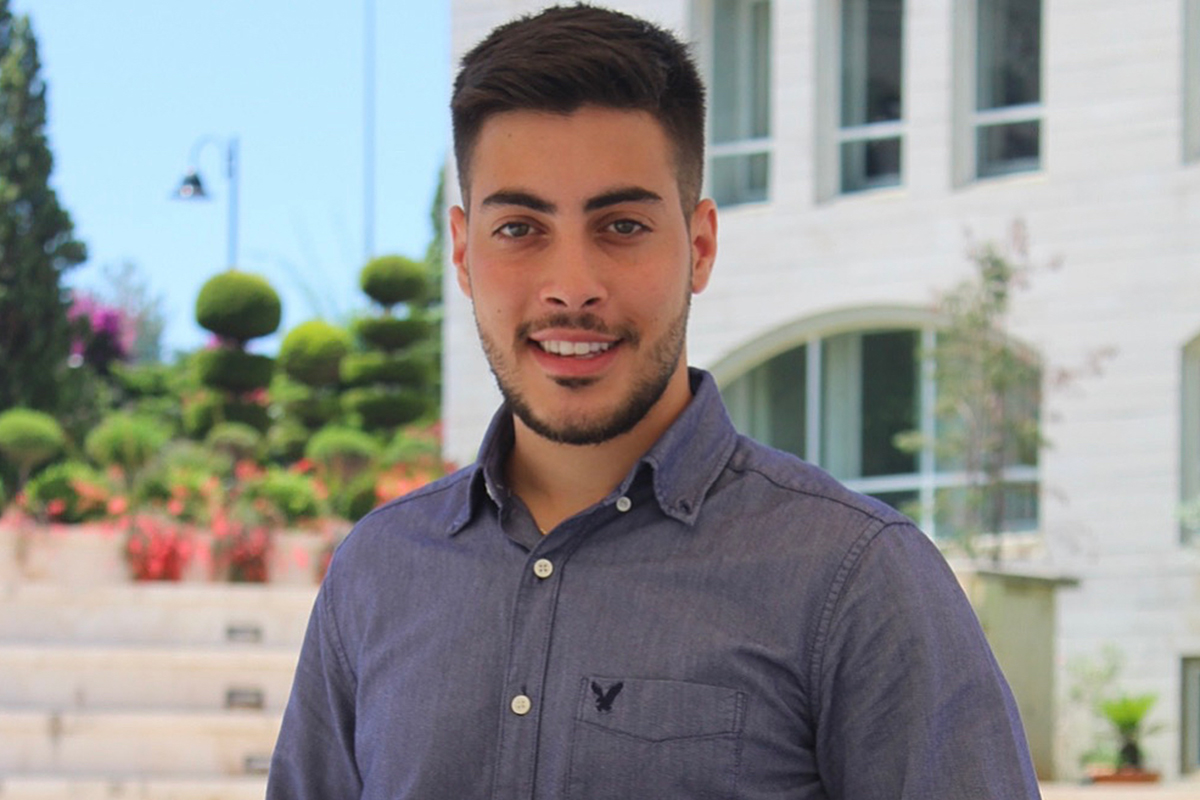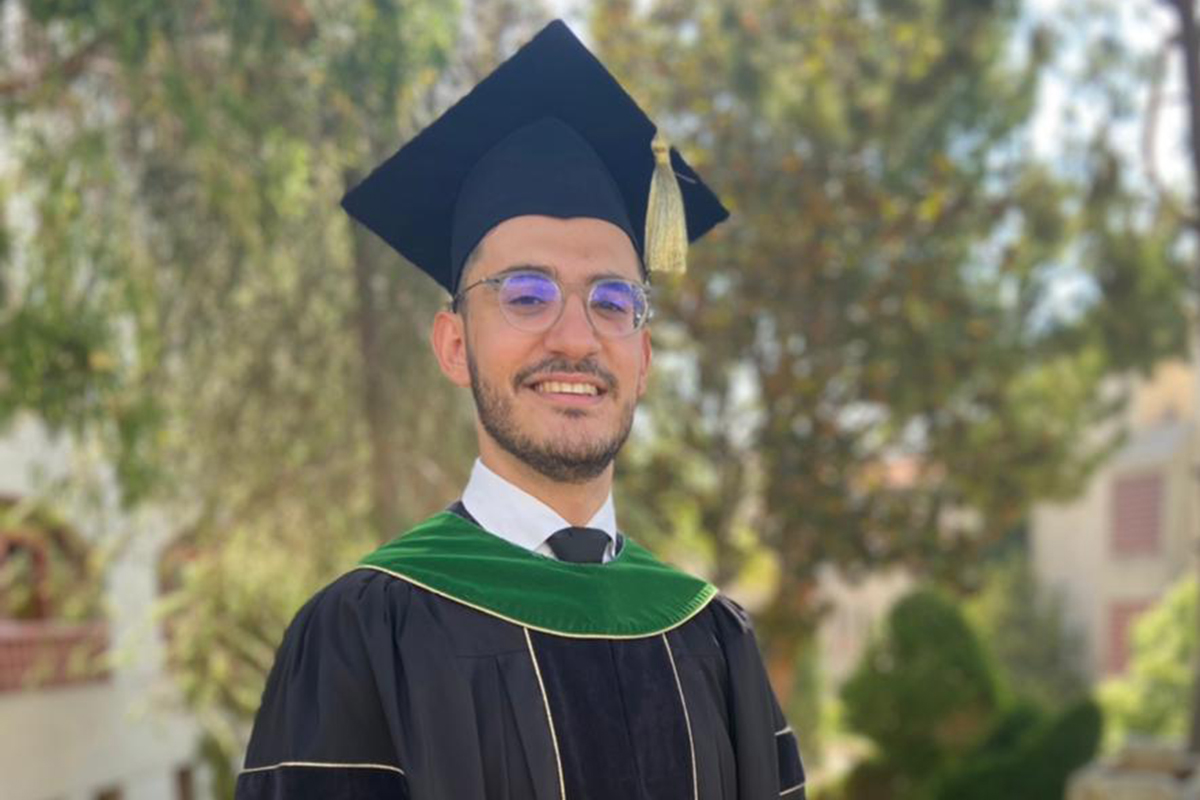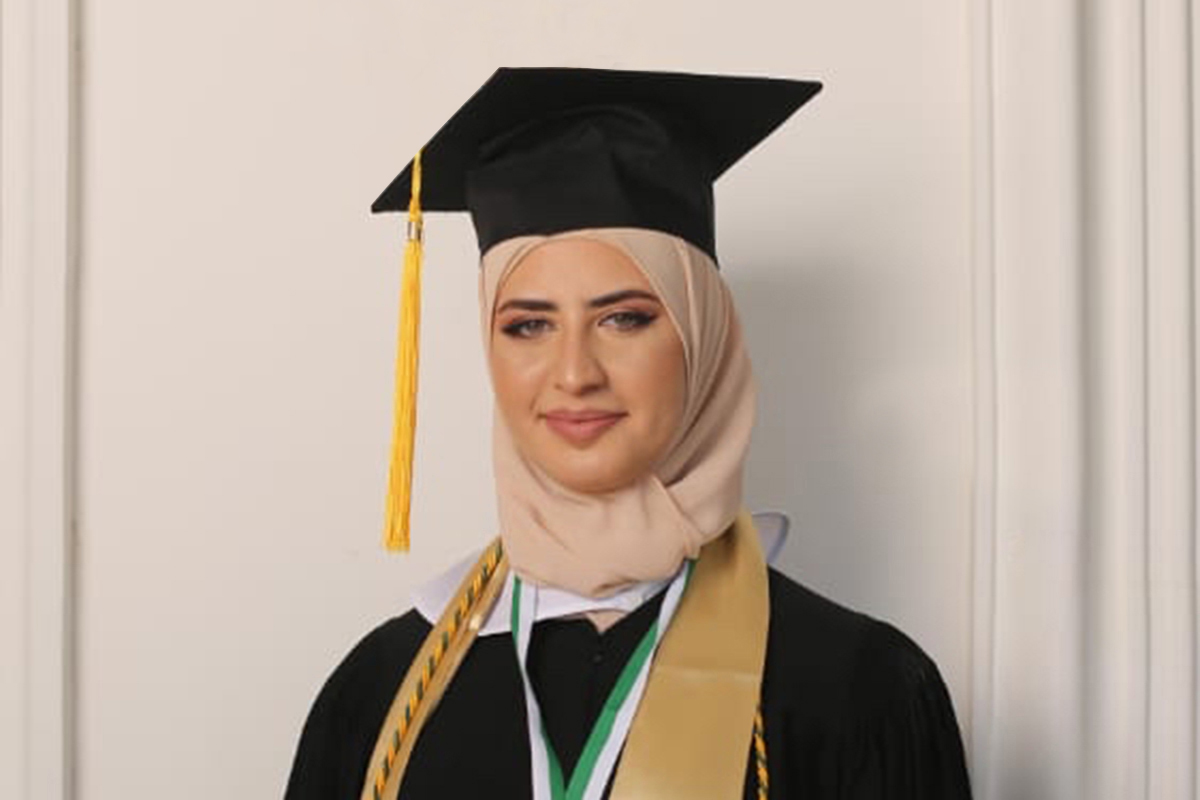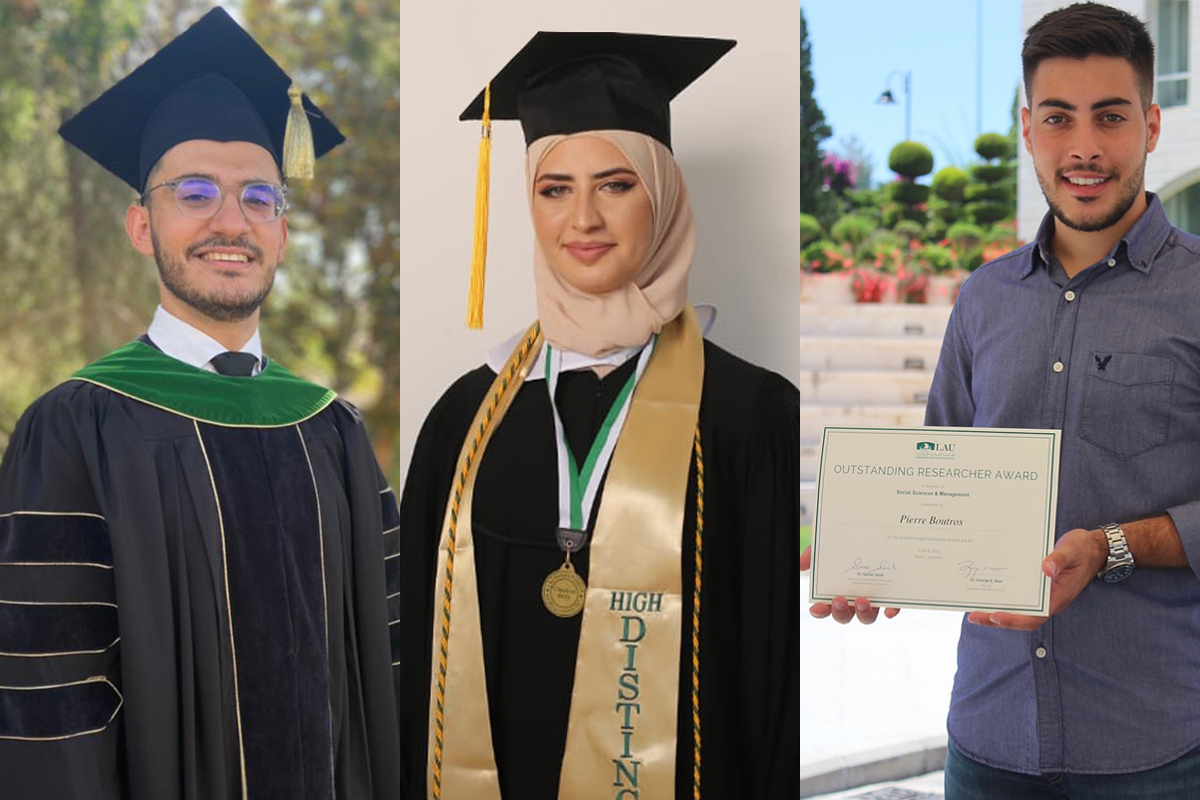Another Year, Another Group of Outstanding Researchers
LAU’s Office of Graduate Studies and Research recognizes three graduate students for their hard work and dedication to research.
As innovation and research lie at the core of the university’s mission, LAU students have the opportunity to collaborate with faculty on research projects as early as their undergraduate years.
While their success in completing valuable research undertakings is rewarding in itself, LAU’s Office of Graduate Studies and Research (GSR) also launched the Student Research Awards in 2021 in recognition of their dedication and hard work.
On June 8, the GSR office held the second such ceremony online, granting three graduate students the Outstanding Research Award in the presence of Provost George E. Nasr and GSR Dean Samer Saab, GSR Assistant Dean Walid Marrouch, the awardees and their supervisors, and faculty and students.
Opening the ceremony, Provost Nasr spoke about the importance of research at LAU, and thanked the GSR office and Dean Saab for all their support. He expressed his pride in “our students who keep on dreaming about a better future and making a difference in terms of discovery and research.”
In turn, Dean Saab introduced the three awardees who had succeeded in publishing their papers within a short timeframe and gave due credit to their supervisors for mentoring them.
This year’s awards fell into three categories: social sciences and management, life sciences and medicine, and engineering and technology.
Pierre Boutros – Social Sciences and Management

Pierre Boutros graduated with a Master in Applied Economics in spring 2022. While at LAU, he published one paper and currently has three other papers under review in peer-reviewed journals.
The published study, co-authored with his supervisor, Associate Chair of the Department of Economics at the Adnan Kassar School of Business Ali Fakih, uses a unique dataset from Lebanon, a developing country with unstable political conditions, to explore the drivers of research outcomes.
With no background in research and a Bachelor in Financial Engineering, the transition to a Master in Economics was very challenging, he said.
“Fortunately, I had a very good mentor and supporter, Dr. Fakih, who let me join his research team where I started learning more and more about research,” he added. “This experience opened so many doors for me. I now work as a consultant at the Lebanese Center for Policy Studies and as a research assistant with Harvard University. I have also been admitted into a PhD program in economics.”
Tony Haykal – Life Sciences and Medicine

Tony Haykal graduated in 2022 with an MD, after graduating in 2018 with a Bachelor in Biology.
Haykal has published 10 papers to date, with four of them as first author. He is working on other manuscripts and has several papers under review in journals.
His research, which he was nominated for, focuses mainly on cancer therapeutics, in other words, new compounds that can act as cancer chemotherapy. Through his research, he was able to prove that “many extracts had a selective effect on these cancer cells without harming normal non-cancerous cells and proceeded to elucidate the process by which the cancer cells die under the molecular effect of the extracts,” he said.
Thanks to the research opportunities he had at LAU, and the mentorship he received from Professor of Biology at the School of Arts and Sciences Sandra Rizk, Haykal was able to land a research scholar position at the University of Pittsburgh Medical Center’s Department of Surgical Oncology.
“The guided liberty I found in Dr. Rizk’s lab, supported by the scientific spirit of LAU, was the key driver behind enriching my critical-thinking and problem-solving skills that helped me in other areas of my career in medicine as well as in my personal life,” he said.
Malak Sayour – Engineering and Technology

Malak Sayour, a mechatronics engineering major who graduated in spring 2022, received the award for her study “Autonomous Robotic Manipulation: Real-time, Deep-Learning Approach for Grasping of Unknown Objects.”
The study “proposes an effective and modular full grasping pipeline tackling the entire process requirement,” she explained. Sayour, who was mentored by Dr. Samer Saab, was also able to prove the system’s effectiveness and showcase her work in a video.
Sayour believes that the opportunity to work on such research was one of her most rewarding experiences at university.
“Research taught me not to compare my start to anybody’s end result,” she said. “Even if there are PhD students around the globe working on your topic and making amazing contributions, your work can still be very valuable, you can still make a difference, and I find this fascinating.”
Collaboration and teamwork are the seed of success, she added. “If every researcher had to reinvent the wheel, we would have never reached this level of technology. By acknowledging the achievements of other researchers and citing their work, one can advance in his research in a remarkable way,” she said.
To browse more scholarly output by the LAU community, visit our open-access digital archive, the Lebanese American University Repository (LAUR).
